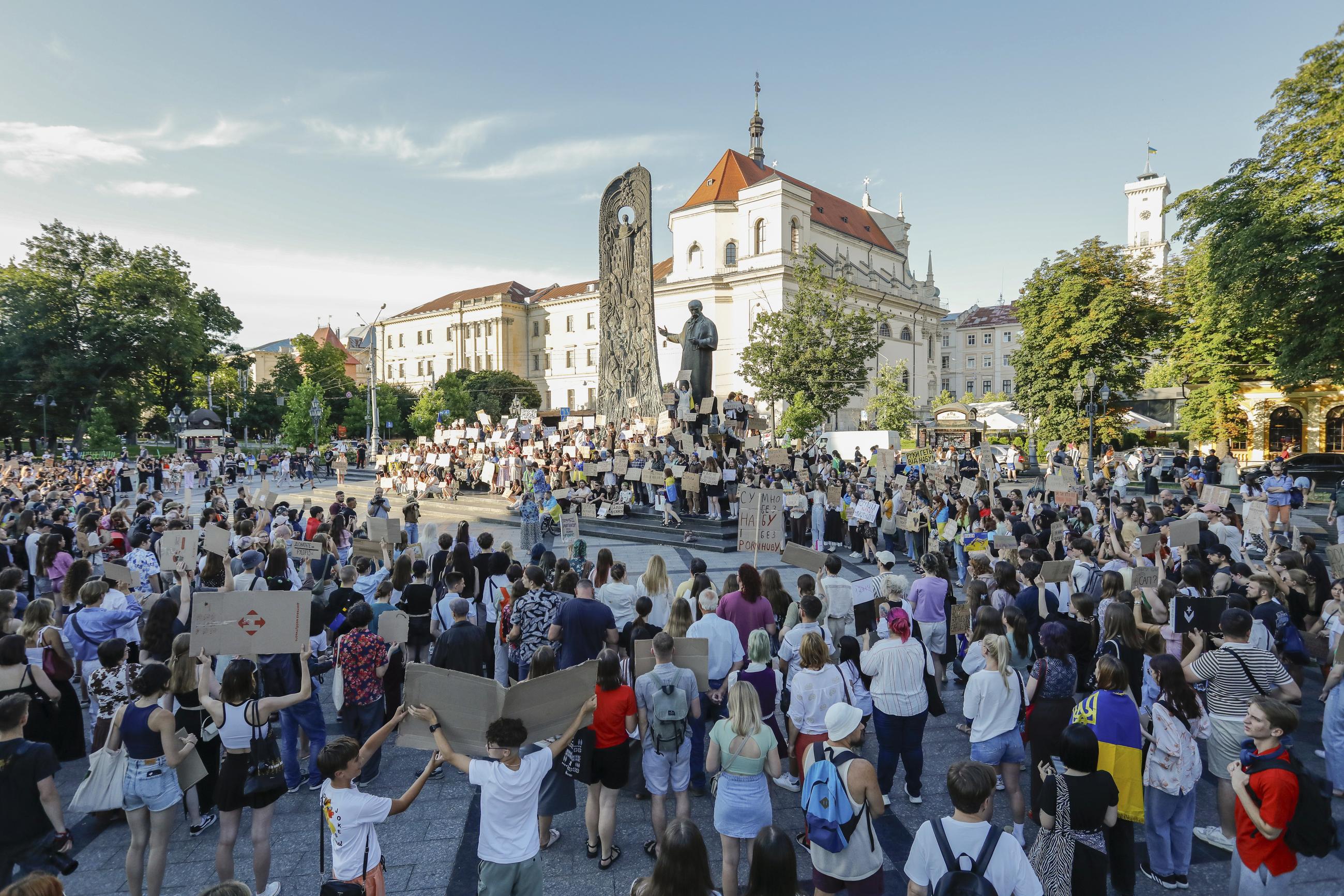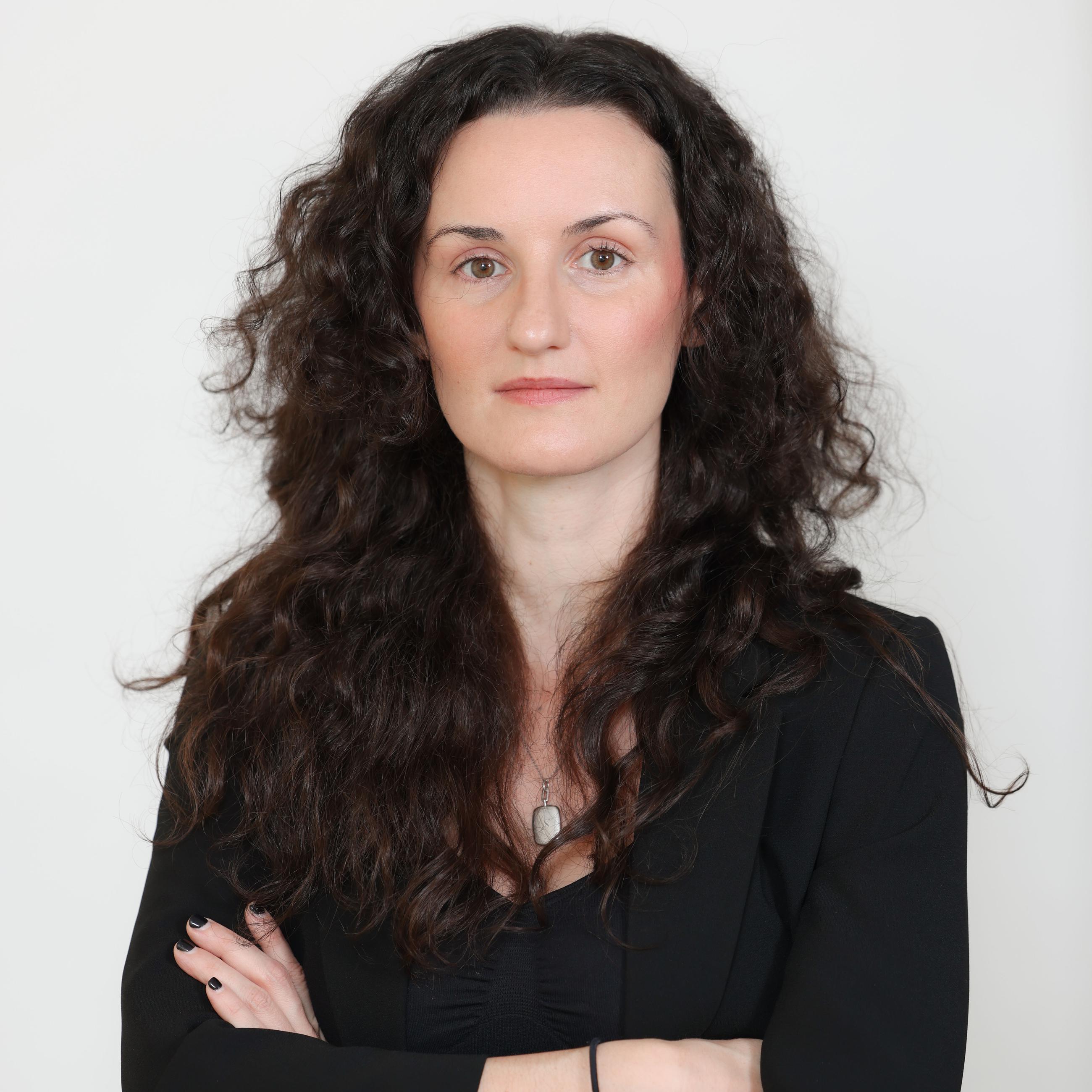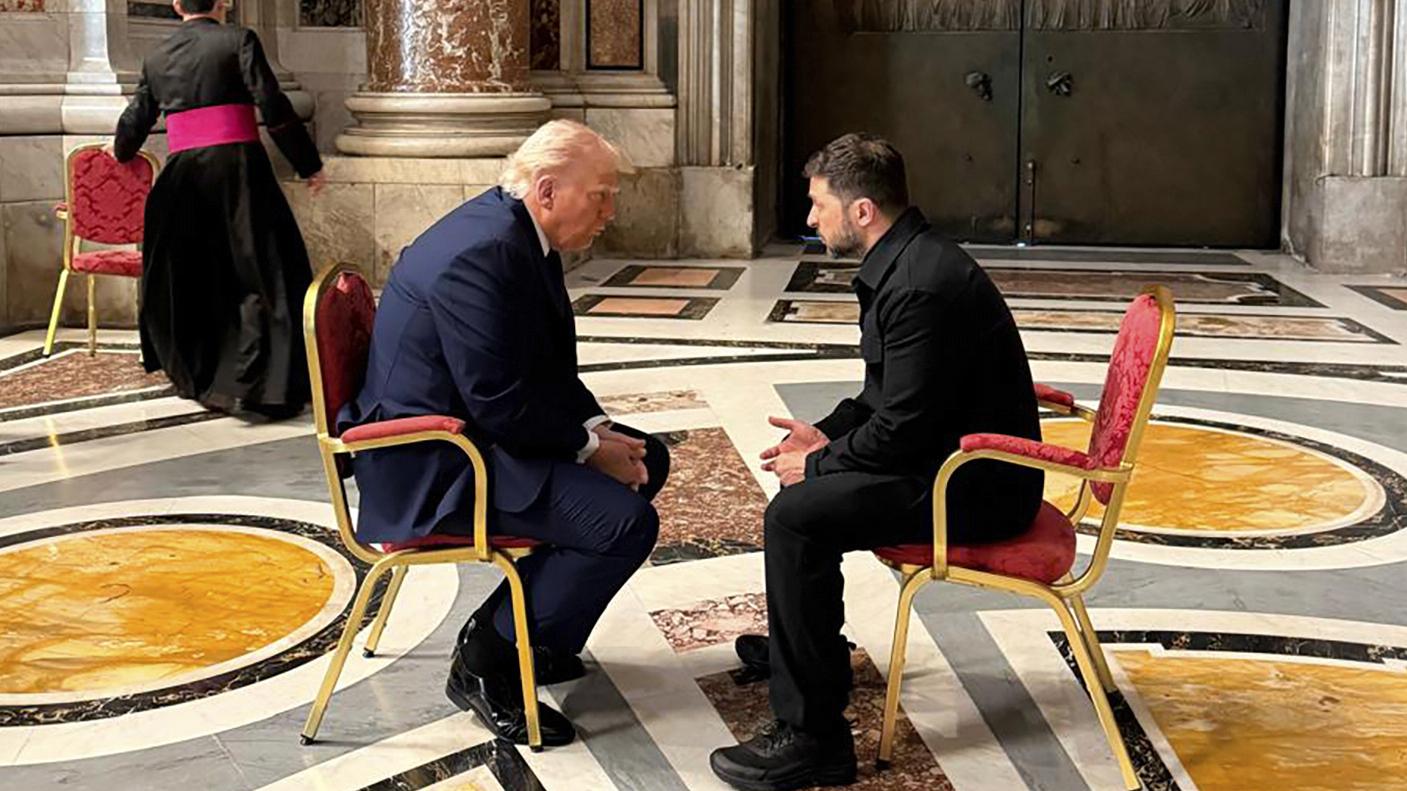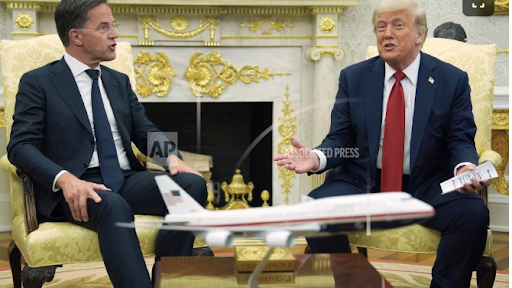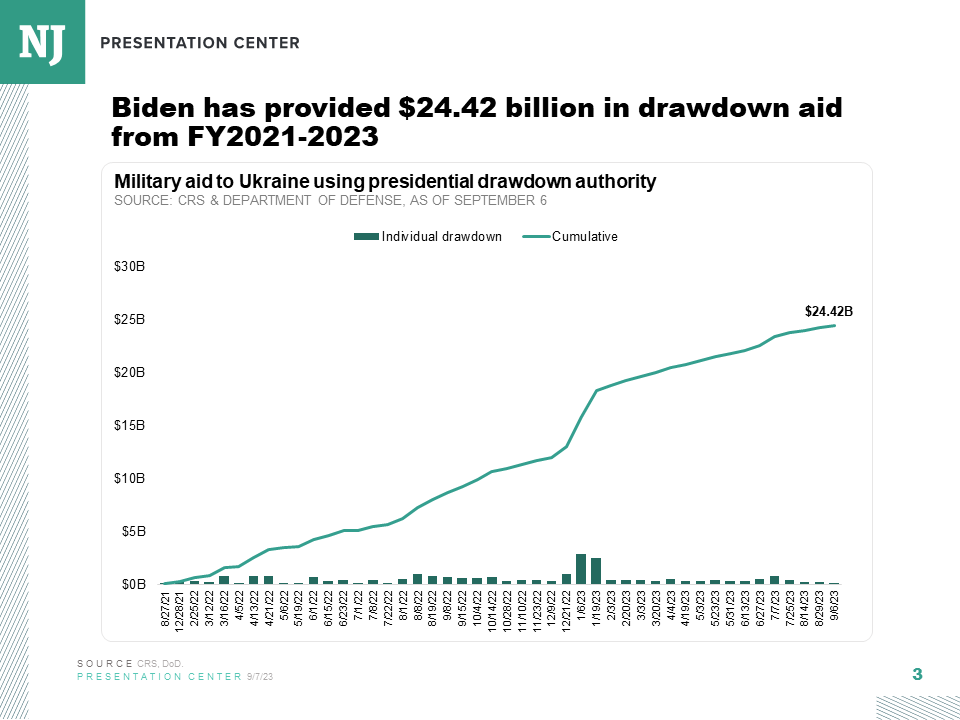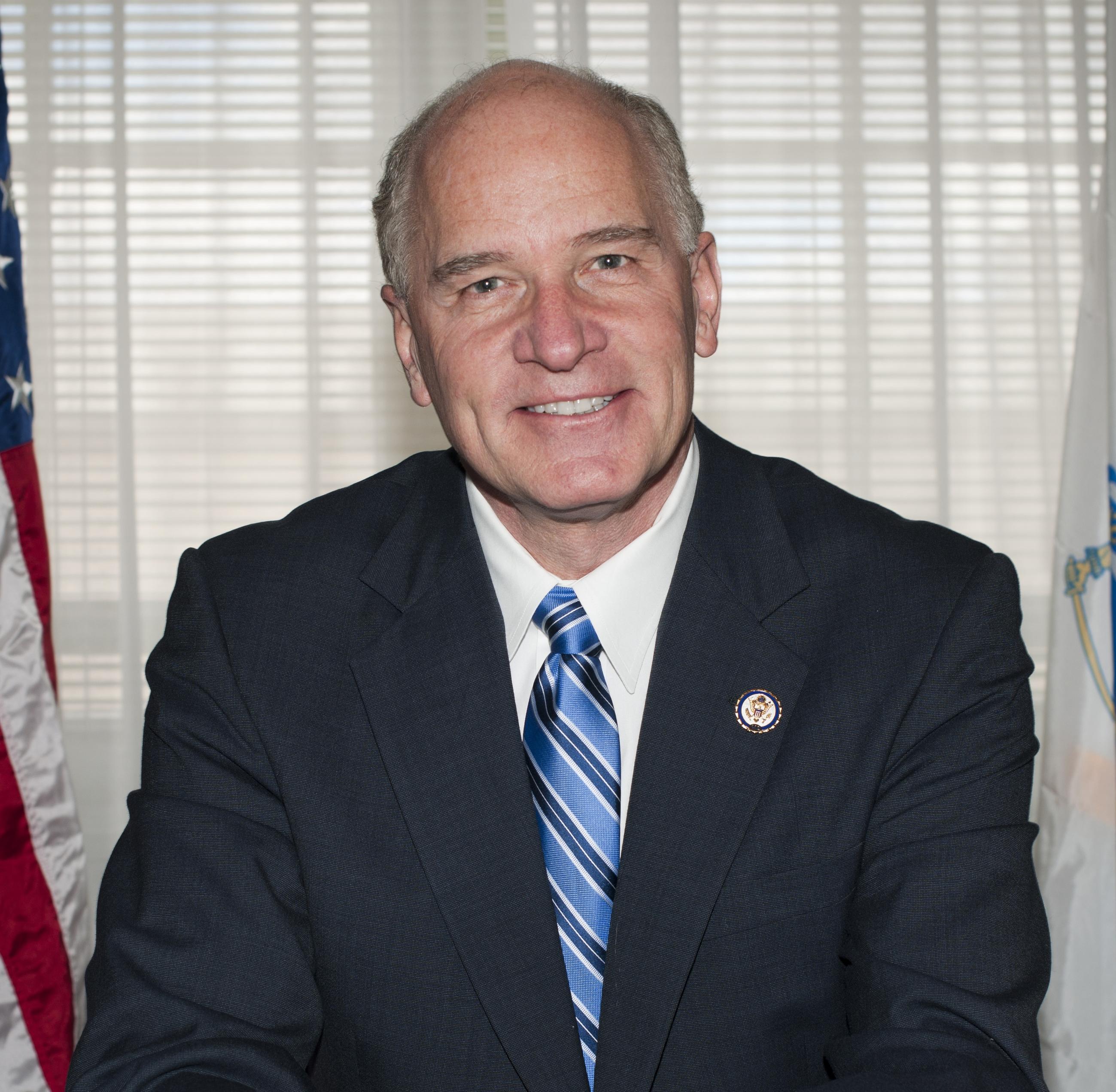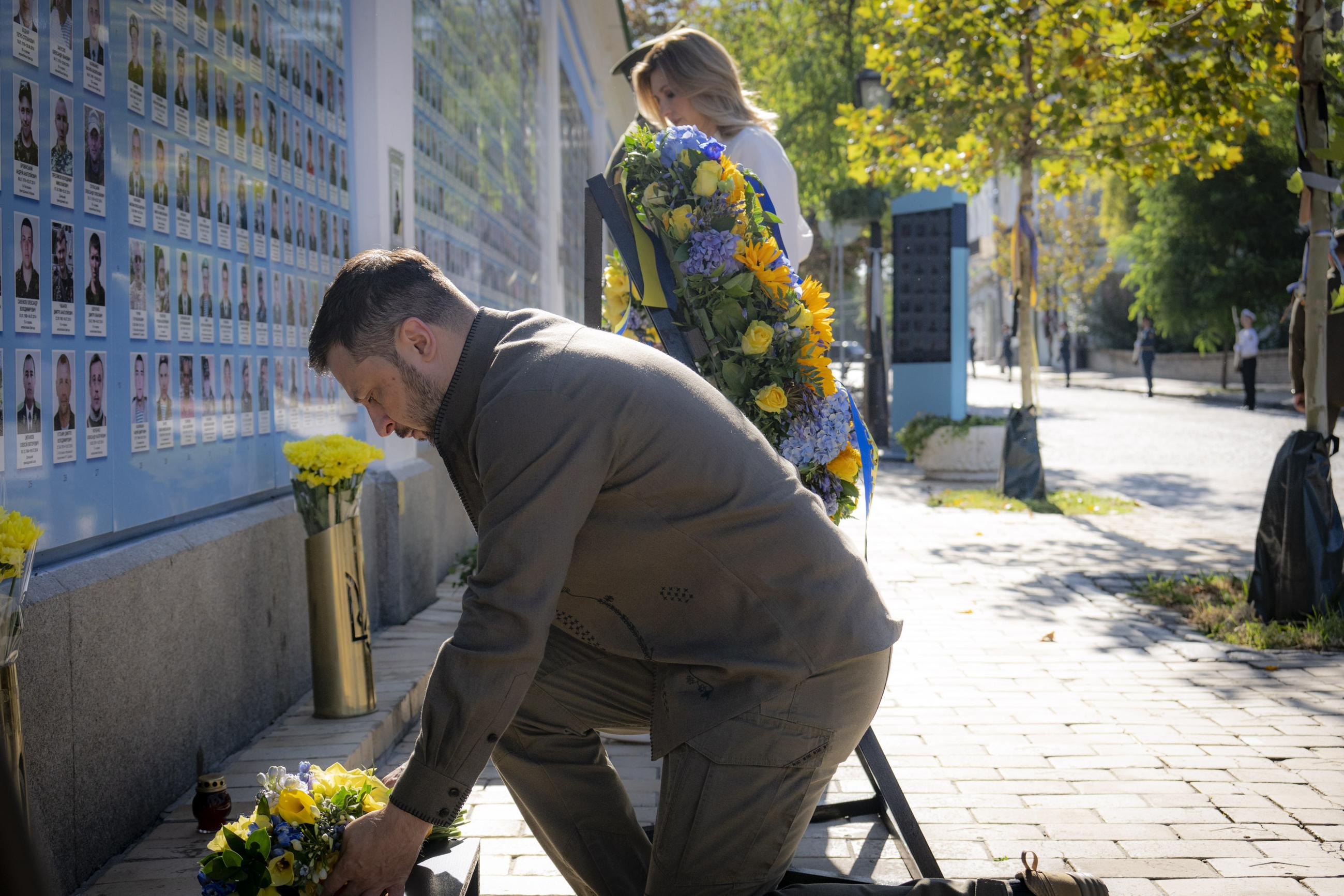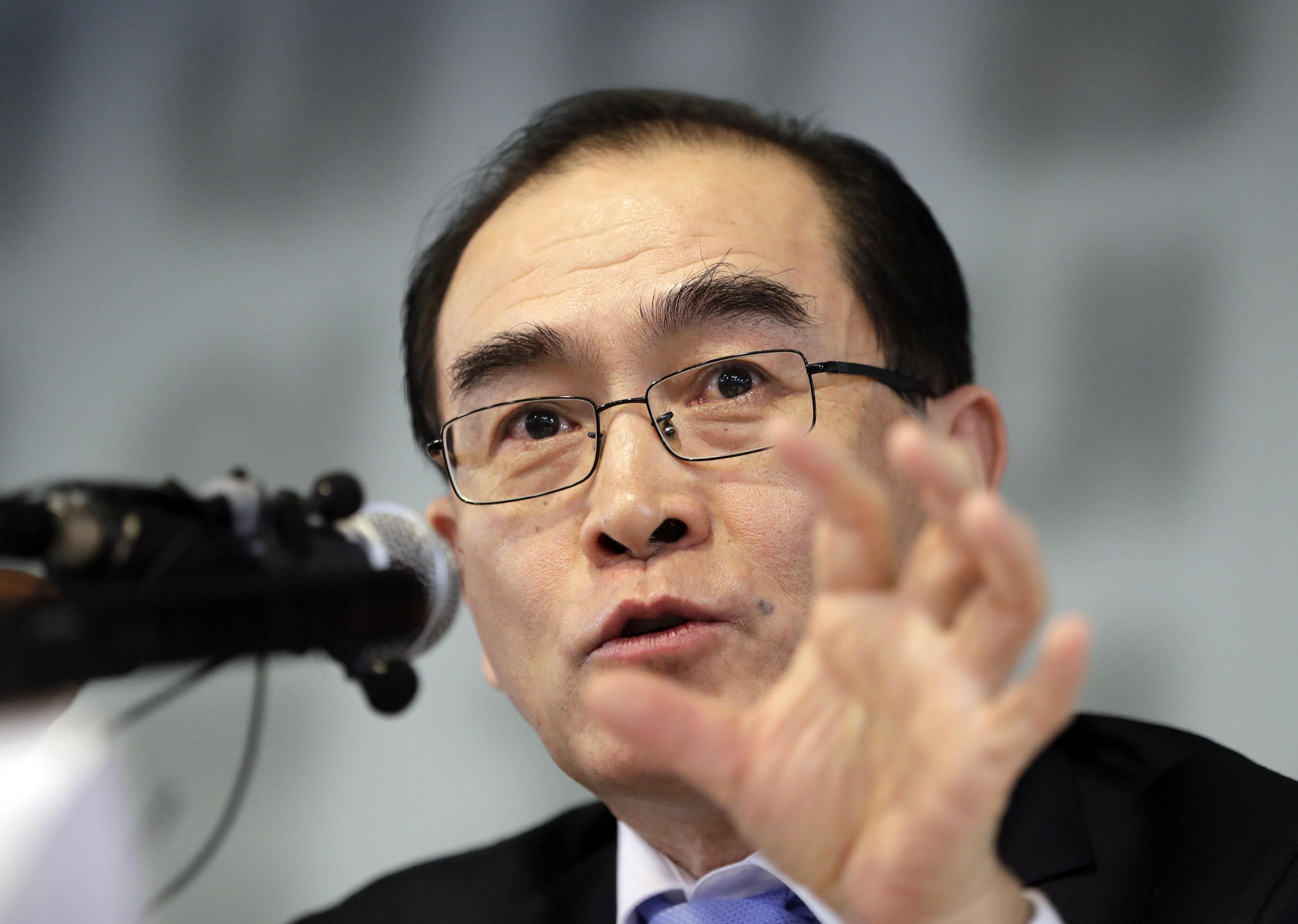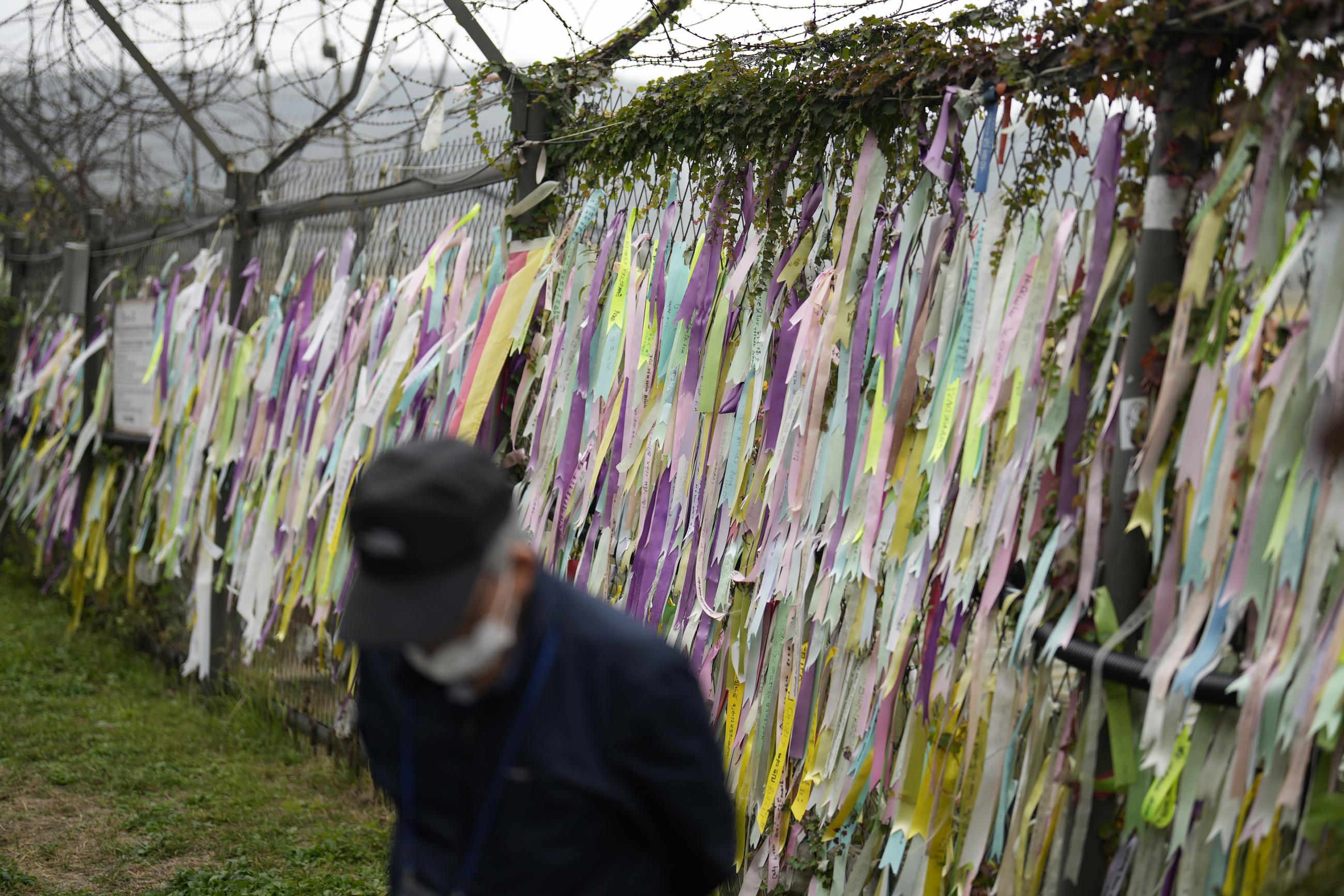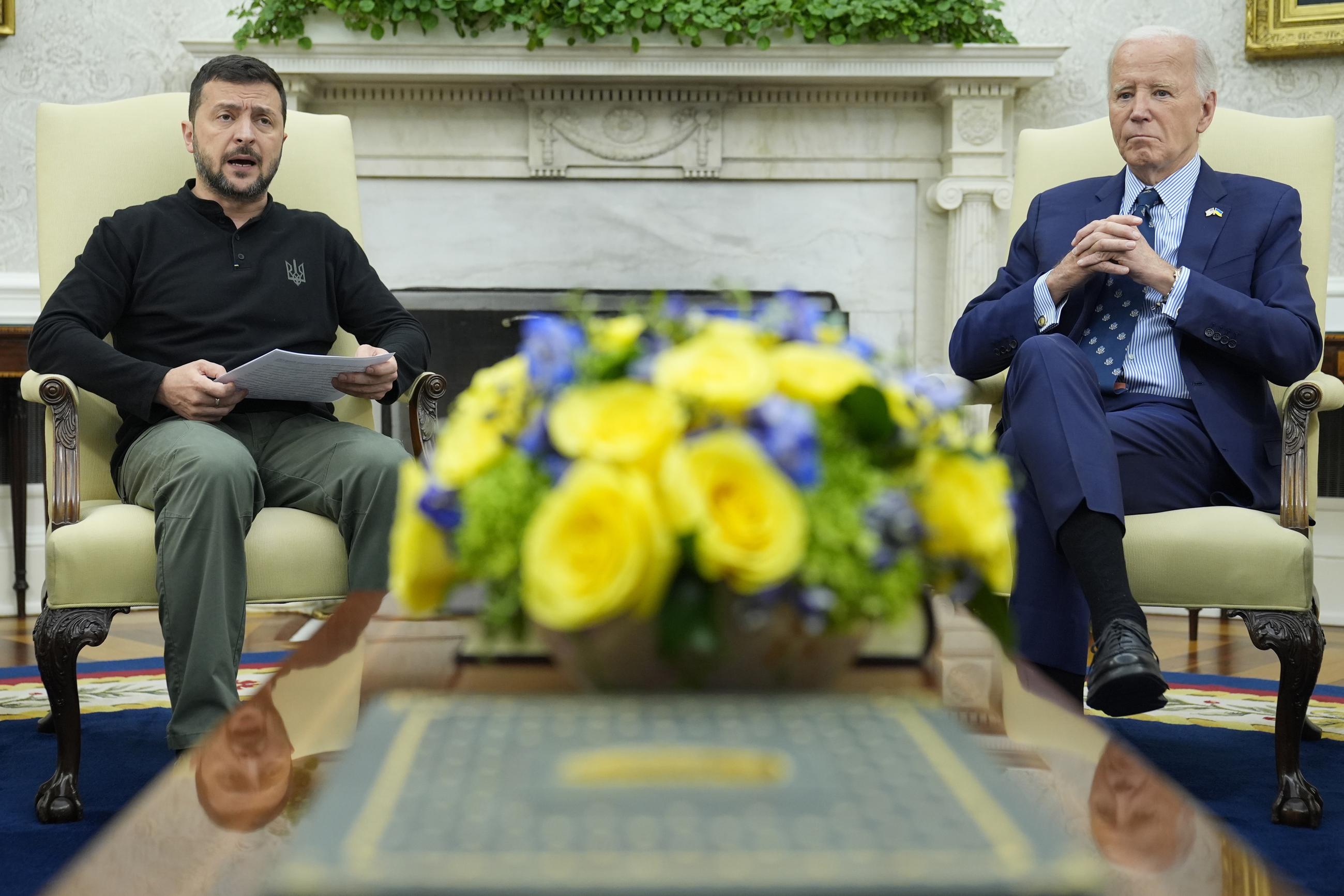Since Donald Trump’s return to power, Washington has essentially renounced its role as the enforcer of democratic norms around the globe. And without Washington breathing down their necks and threatening to issue sanctions or withhold aid, world leaders have demonstrated decidedly less interest in respecting those long-held standards.
Ukraine—where the government of President Volodymyr Zelensky is fighting an existential battle for his country’s survival following Russia’s full-scale invasion—is not an exception to the rule. Anti-corruption activists in the country say that since Trump re-entered the White House, Zelensky has begun to consolidate power within his inner circle and crack down on independent institutions, expecting that the international community will not hold him accountable.
But Ukrainians weren’t going to let him get away with that. Over the last week, thousands of protesters risked Russian airstrikes as they took to the streets in cities across the country. These were the first major protests against the government since the start of Russia’s full-scale invasion in early 2022, and they succeeded in attracting international attention and convincing Zelensky to back down on some of the actions Ukrainian citizens opposed.
“After America withdrew from supporting Ukraine in reforms, both financially and politically, there was a void created that we expected the European Union to fill, but the EU didn’t fill it,” said Daria Kaleniuk, a Ukrainian civil society activist and the executive director of Ukraine’s Anti-Corruption Action Center.
“The voice of the U.S. in supporting judicial, anti-corruption, and good governance laws was critical and crucial. Since the end of January, Ukrainian leadership understands that for the U.S., anti-corruption, good governance, and the rule of law are not a priority anymore.”
Kaleniuk said that the first signs of trouble began in January when the Ukrainian government recalled the independent board members of the country’s defense procurement agency and appointed loyalists to the board.
Others say they knew something was wrong in early July when Zelensky’s government refused to appoint Oleksandr Tsyvinsky as the head of Ukraine’s Economic Security Bureau. Choosing a new head for the bureau was one of the International Monetary Fund’s conditions for continuing to provide aid to Ukraine. Anti-corruption activists said that government authorities had previously used the bureau to exert pressure on independent businesses. Appointing an independent head was meant to be a significant step for transparency.
The European Union said nothing in response. At a conference for Ukraine’s reconstruction, organized by the Ukrainian and Italian governments in Rome in mid-July, top European officials stood on stage with Zelensky. They heralded the progress that Kyiv has made toward EU integration. Critics argue that the lack of accountability gave the Ukrainian government the green light to continue consolidating power.
On July 11, the day the conference in Rome concluded, Ukraine’s government initiated proceedings against Vitaliy Shabunin, a soldier in the Ukrainian army and co-founder of the Anti-Corruption Action Center, one of the key independent organizations pushing for anti-corruption reforms in Ukraine. Officials accused Shabunin of fraud and avoiding military service.
Shabunin is a controversial figure in Ukraine, and some members of the public shrugged at his arrest. Still, independent analysts said that the charges against him don’t hold water. The watchdog organization Transparency International said the prosecution “has signs of being politically motivated and constitutes an abuse of law.”
Around the same time, rumors were circulating that the government would soon crack down on the National Anti-Corruption Bureau of Ukraine, an independent investigative body established in response to pressure from the Obama administration. By July 21, Ukraine’s security forces had conducted raids in over 70 different locations connected to NABU. The Prosecutor General’s office launched investigations into 15 NABU employees for everything from minor traffic violations to alleged ties to Russia. They also searched the Special Anti-Corruption Prosecutor's Office, the body where NABU brings its cases.
Mattia Nelles, co-founder of the German-Ukrainian Bureau who has been tracking NABU’s work since its creation in 2015, called the attack on the bureau “brazen.”
“There were attacks on NABU before, but on this scale, it never happened before,” Nelles told National Journal. “There were some clashes with the SBU [the Security Service of Ukraine]. The SBU beat up some NABU guys before, but this was a cross-country [campaign]—80 raids—on the pretext of cleaning them of Russian influence, which is a very serious charge that cannot be disregarded in war.”
Just one day after the raids on NABU, lawmakers with Zelensky’s Servant of the People party, which has a majority in parliament, rapidly pushed through a law cementing the government’s control over both NABU and SAPO, putting them under the control of a general prosecutor Zelensky appointed.
Zelensky signed the law almost immediately, allowing the prosecutor to exercise control over the previously independent anti-corruption bodies. Ukrainian civil society, alarmed by what appeared to be a power grab, took to the streets.
Yaroslav, a 23-year-old Kyiv resident who participated in the protests, said he joined the demonstrations because he thought Zelensky signed the law too quickly. He felt let down by what he viewed as a lack of integrity. On the first day, he said he believes there were a few thousand people in the streets. But the next day, there were many more. Some estimates put the numbers as high as 9,000 to 16,000 protesters.
“It was probably the most people I’ve seen since the war started,” Yaroslav told National Journal. “The vibe was pretty good. The slogan changed from ‘Veto the law’ to ‘Cancel the law.’”
Many of the protesters are students under the age of 30. They held up cardboard signs calling on the government to keep its hands off of NABU. Some sang the national anthem. Others led chants against Zelensky’s powerful head of office, Andriy Yermak, a polarizing figure who has been the subject of much recent media attention. Critics have long claimed that Yermak is a one-man army who vets all information that reaches the president, and that only his closest allies wield influence in the war-torn country. To have their voices heard, protesters stood near Zelensky’s office and called on him to rescind the bill.
The mood was reminiscent of 2013, when citizens eventually toppled the former Russian-aligned president who had backed away from Ukraine’s European integration. Ukrainians showed once again that they will consistently protest any move that might jeopardize their future in the European Union.
The protests, unprecedented during wartime, got Europe’s attention. European diplomats began pressuring Zelensky to walk back the bill. There was a flurry of diplomacy and strongly worded statements.
Beate Meinl-Reisinger, Austria’s foreign minister, told National Journal during a recent visit to Washington that what happened in Ukraine “is not helpful at all.”
“That is exactly what we told our Ukrainian friends. We should be very clear on that. I was not happy about this at all, and I hope that they’re going to change it,” Meinl-Reisinger said. “Regarding EU accession, that is part of the right to self-determination. Ukraine is a big country, we’re going to invest a lot of money into the reconstruction process, and we see that Ukraine wants to be part of the European family. They want to work on the reforms. Of course, there are necessary reforms. There is no fast-track.”
The European Union now plans to withhold 1.5 billion euros in aid to Ukraine, which is contingent upon the country meeting good governance standards. The decision was allegedly unconnected to the crackdown on NABU and SAPO. That pot of money, part of a 4.5 billion euro fund, would not have been available for military purchases and will not impact the war effort.
Some say Zelensky’s move against anti-corruption institutions cost European Commission President Ursula von der Leyen and EU Enlargement Commissioner Marta Kos political capital. Both have attempted to rally EU member states to support Ukraine’s European path, which is contingent upon anti-corruption reforms, despite vetoes from Hungary, a Russian ally. Activists expressed concern that Russian and Hungarian propaganda machines would take advantage of the events.
“I think there will be Russian propaganda, and other far-right and far-left movements inside the U.S. and probably some other countries, which will try to portray this situation as a big argument for why they shouldn’t support Ukraine,” said Kaleniuk. “I would say, the fact that we do have these rallies, led by extremely young people, is a reason to keep supporting Ukraine.”
“That basically reflects that Ukraine is a democracy where people, despite the large-scale war, are not happy with the rollbacks to our critical anti-corruption reforms, and they can basically stop our president and our leadership from making horrible mistakes,” Kaleniuk added.
Zelensky, meanwhile, has said that he “heard the public opinion” and promised to push through a new bill that would restore the independence of NABU and SAPO. Lawmakers will vote on the legislation in Ukraine’s parliament on Thursday. Still, some protesters say that, regardless of what happens next, they’ve lost some faith in their government.
“It felt like a betrayal,” said Yaroslav, the young protester in Kyiv. “Trying to change it and pass another bill felt to me like populism and a weird step. I can’t see a clear plan behind it, and that’s why I’m a little bit skeptical.”

